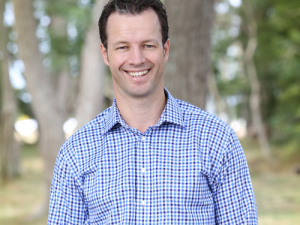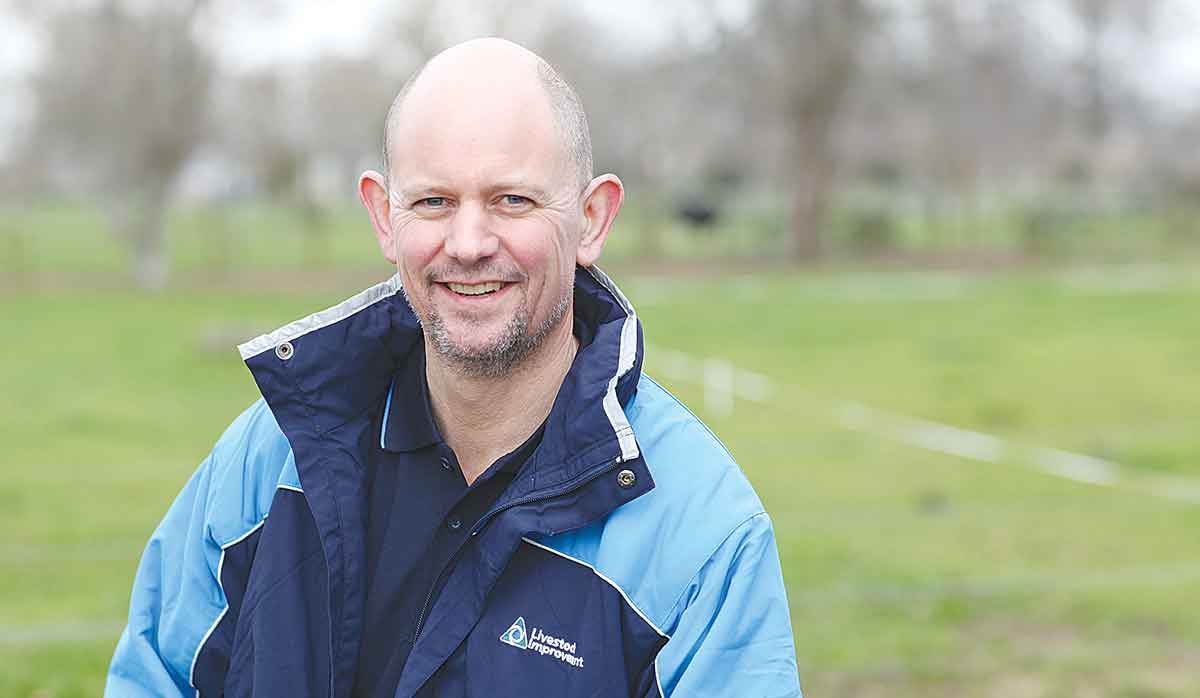DairyNZ opens applications for associate director role
DairyNZ is giving New Zealand farmers a unique opportunity to gain hands-on governance and leadership experience within the dairy sector.
 DairyNZ chief executive Dr Tim Mackle says record milk production per cow was achieved despite relatively stable cow numbers.
DairyNZ chief executive Dr Tim Mackle says record milk production per cow was achieved despite relatively stable cow numbers.
The annual New Zealand Dairy Statistics publication reveals another record year for the dairy sector, with total milksolids production at a record high.
The DairyNZ and Livestock Improvement Corporation (LIC) statistics show that in the 2019-20 season, New Zealand dairy companies processed 21.1 billion litres of milk containing 1.90 billion kgMS, a 0.6% increase from the previous season.
Average milk production per cow also increased from 381kgMS last season to 385kgMS this season, while the latest count showed that New Zealand has 4.921 million milking cows – a decrease of 0.5% from the previous season.
This is down significantly from peak cow numbers in 2014/15, which were at over 5 million.
DairyNZ chief executive Dr Tim Mackle says record milksolids production per cow was achieved despite cow numbers continuing to remain relatively stable, as farmers place more focus on cow productivity and environmental efficiency.
“The commitment by our farmers to improve the quality of their herds to drive better productivity and sustainability outcomes is good news,” Mackle said.
“While some of our key sectors have been hit hard by Covid-19, our dairy sector has proven extremely resilient through this period of uncertainty and is well-positioned to continue playing a key role in contributing to New Zealand’s economy.
“The dairy sector employs 50,000 people and earns New Zealand roughly $20 billion in exports per year. The success of our dairy farmers is extremely important to every Kiwi and has real benefits to New Zealand,” he said.
This year’s dairy cow census also showed New Zealand dairy farmers are continuing to draw on a range of tools to ensure their cows are year-on-year more efficient at converting grass into milk.
The number of cows herd tested was the highest on record this year, with a total of 3.689 million cows herd tested – equating to 75% of all cows.
LIC chief executive Wayne McNee says the focus on cow quality is evident in the increasing uptake of herd improvement services.
“Herd testing enables farmers to collect information about individual cows in their herds, and to monitor cow performance and wellbeing so they can make informed, effective herd management decisions on farm.”
Artificial breeding (AB) is another tool used by Kiwi dairy farmers to increase cow productivity. 3.46 million cows were mated to AB in 2019-20, a slight decrease from the previous season.
 |
|---|
|
LIC chief executive Wayne McNee says that focus on cow quality is evident in the uptake of herd improvement services. |
“This year New Zealand is celebrating 70 years of artificial breeding for the national dairy herd, which has been game-changing for the value we deliver on farm,” McNee said.
“Interest in the highest genetic merit animals continues to grow year-on-year, with farmers investing in the latest artificial breeding technologies and indexes that focus on productivity, as well as animal welfare and the environment,” he said.
McNee adds that new innovations and agritech solutions will play an important role in ensuring that farmers can breed more productive and profitable cows.
“As we invest more into research into genomics, it is pleasing to see more and more farmers utilising Genomic Sires to create on-farm value. Genomic evaluation allows scientists to evaluate a bull’s genetic merit with more accuracy at a younger age.
“LIC expects to create 1.4 million genomic inseminations throughout the country this year, a growth of over 1 million inseminations in just three seasons.”
Fonterra’s impending exit from the Australian dairy industry is a major event but the story doesn’t change too much for farmers.
Expect greater collaboration between Massey University’s school of Agriculture and Environment and Ireland’s leading agriculture university, the University College of Dublin (UCD), in the future.
A partnership between Torere Macadamias Ltd and the Riddet Institute aims to unlock value from macadamia nuts while growing the next generation of Māori agribusiness researchers.
A new partnership between Dairy Women’s Network (DWN) and NZAgbiz aims to make evidence-based calf rearing practices accessible to all farm teams.
Despite some trying circumstances recently, the cherry season looks set to emerge on top of things.
Changed logos on shirts otherwise it will be business as usual when Fonterra’s consumer and related businesses are expected to change hands next month.
OPINION: Fonterra may be on the verge of selling its consumer business in New Zealand, but the co-operative is not…
OPINION: What does the birth rate in China have to do with stock trading? Just ask a2 Milk Company.